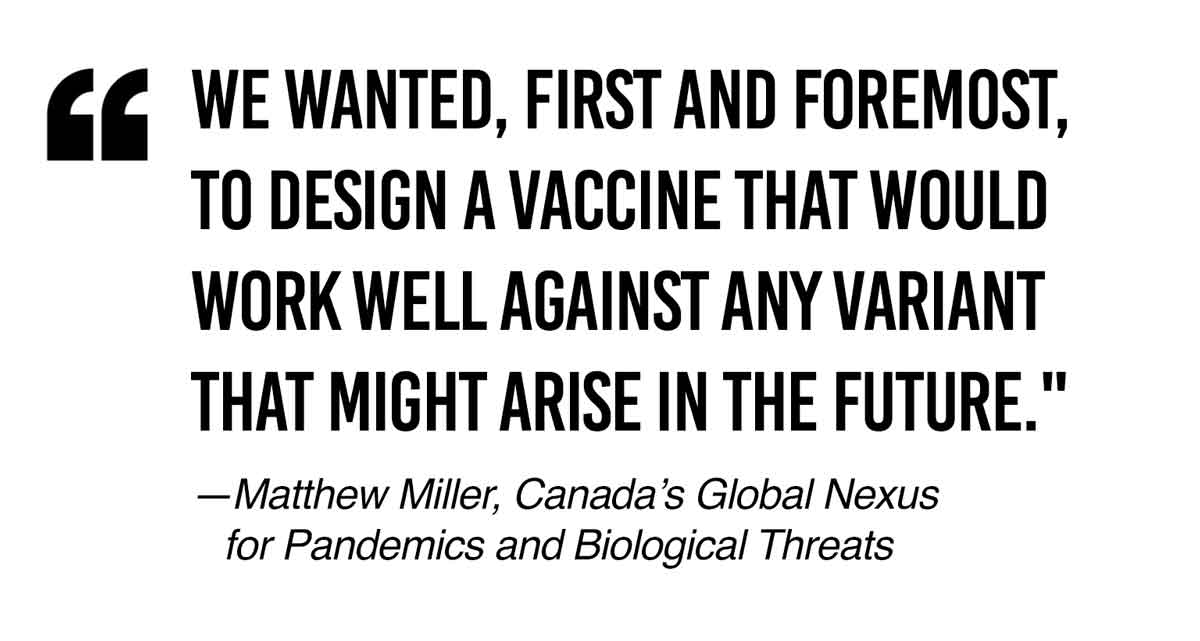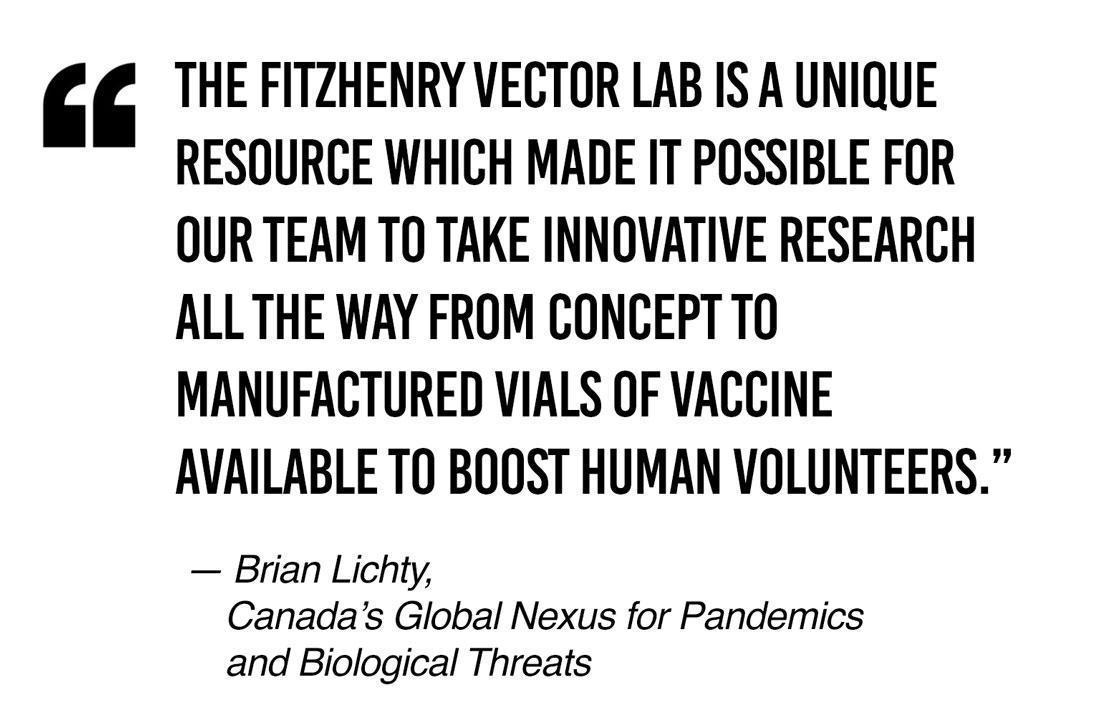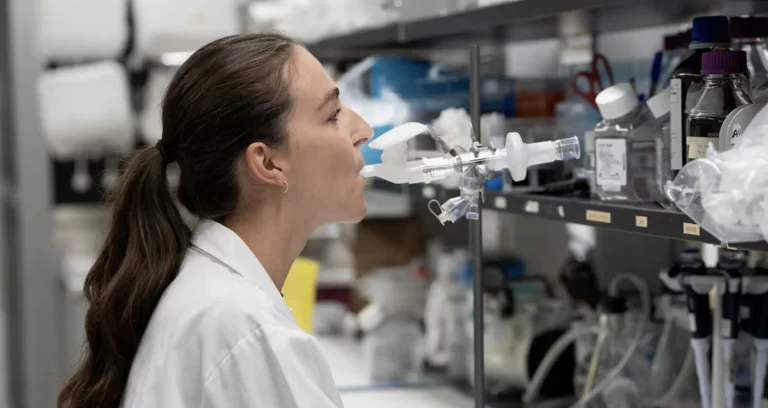Researchers at McMaster University are proceeding with Phase 2 human trials for a next-generation, aerosol-borne COVID-19 vaccine.
The new inhaled vaccine, with the potential to induce robust mucosal immunity against strains of SARS-CoV-2, including Omicron and other variants of concern, is entirely Canadian, from design and biomanufacturing at McMaster’s Robert E. Fitzhenry Vector Lab to pre-clinical and clinical testing conducted by a team of experts in infectious disease and immunology.
Pre-clinical trials have shown the inhaled aerosol vaccine is far more effective at inducing protective immune responses than traditional injections, partly because it targets the lungs and upper airways where viruses first enter the body, providing long-lasting protection against respiratory infections.

During Phase 1 of the human trials, researchers are evaluating safety and dose levels of the inhaled vaccine in 30 healthy volunteers, who have received at least two doses of a mRNA vaccine.
A large Phase 2 study will further evaluate safety and immune responses and is expected to begin in the coming months. It will involve up to 500 participants who have received at least three doses of a mRNA vaccine and include those who are older, have other health conditions, and may have a prior history of COVID infection.
“If we can show the new inhaled vaccine is safe and effective, as we anticipate, the impact will be significant for human health, medical costs and better quality of life,” says Fiona Smaill, professor emerita in the department of Pathology and Molecular Medicine, who is leading the trials with colleagues Matthew Miller, Scientific Director of the Michael G. DeGroote Institute for Infectious Disease Research; Zhou Xing, a professor of medicine; and Brian Lichty, an associate professor of medicine; with collaborators from Dalhousie University and the University of Ottawa.
The work is a critical mission of Canada’s Global Nexus for Pandemics and Biological Threats, which is based at McMaster.

Researchers are concerned about the declining uptake of booster vaccines, which is part of broader pandemic fatigue, and they anticipate a no-needle, pain-free vaccine will be much more appealing and convenient.
The new vaccine strategy will position Canada at the forefront for facing new stages of the current pandemic and preparing for the next pandemic, while advancing our understanding of develop new inhaled vaccines against other infections such as tuberculosis and influenza, they say.
The Phase 2 human trials were made possible thanks to $8 million in funding from the Canadian Institutes for Health Research (CIHR).
CIHR’s Clinical Trials Fund is designed to reinforce Canada’s clinical trials ecosystem from discovery to implementation.
Filomena Tassi, MP for Hamilton West-Ancaster-Dundas and minister responsible for the Federal Economic Development Agency for Southern Ontario, made the announcement at McMaster, as part of CIHR’s Clinical Trials funding initiative, involving seven projects at the university.



